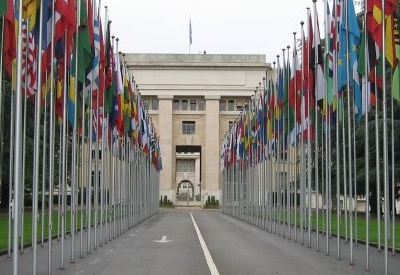U.S. not ready to relinquish station in South China Sea

As General Secretary of the CCP, Xi Jinping has ruled China as his personal fiefdom; a return to a monarchical period to ensure China's dominance as a regional power while growing it's international brand to supplant U.S. hegemony by 2050. Xi has been on a mission since taking the mantle in 2012:
- seeking out those internal factions that undermine Party legitimacy by eliminating or constraining the graft.
- expanding and developing China's navy to control and manage the South China Sea within the frame-work of the "nine-dash line."
- constructing military outposts on reefs in the South China Sea where other regional claimants have declared sovereignty; see: Taiwan, Vietnam, Malaysia, The Philippines, Japan, and Brunei
- challenging India along the LAC (Line of Actual Control) resulting in 20 reported Indian fatalities in May 2020. China has not released their casualty estimates.
- Preparing to institute an ADIZ in the South China Sea to control and monitor shipping lanes and deter the United States and allies from performing FONOPS to challenge China's perceived sovereignty over the SCS
- detaining Uyghurs in detention camps in Xinjiang province to re-educate them towards Sinicisation away from their Islamic roots and ideology
- tightening controls over Tibetan's in the education system and communities to respect and foster the Chinese life-style that China purported to save Tibetans from their feudal nomadic lifestyle that was established over millennial
- savaging Taiwan's airspace in order to undermine their defence systems, coerce them away from American influence and to accept China's "One - China" principle that includes Taiwan as it's territory, despite Taiwanese sovereignty for over seventy years.
- instituting a national security law in Hong Kong in May 2020 to give special powers to police to quell protesters and dissenters that oppose China's control over Hongkongers freedoms and political system well in advance of the official handover in 2047
- offering infrastructure and financing to developing countries in order to bolster their infrastructure while giving many SOE's a foothold in these same jurisdictions that may influence their political systems and challenge their autonomy if they default on these loans through Xi's BRI (Belt and Road Initiative.) China has been criticized for holding tight for not acceding to loan forgiveness during the pandemic.
- Xi has consolidated further control of the CCP as he can summon the seven member standing committee and twenty - five member Politburo, while setting the agenda.
- pursuing and achieving unlimited term limits that ensure his position for life
- covering up the origin and severity of COVID -19 that has indirectly led to 1, 091, 123 deaths internationally, according to John Hopkins as of October 14.
“Special Coordinator Destro will engage Tibetan leaders and international partners and experts to address these issues. He also will carry forward the Department’s engagement with and support for Tibet’s global diaspora and their many courageous advocates for the protection of human rights, including the freedom of religion or belief.”
Furthermore, “The U.S. is increasingly concerned that deterrence is weakening as Chinese military capabilities grow,” said Bonnie S. Glaser, a senior adviser for Asia at the Center for Strategic and International Studies. “The items in this package will help increase Taiwan’s ability to prevent a Chinese invasion — essentially to hold out longer.”
But, she said: “Weapons procurements are only one part of that equation. The U.S. is also urging Taiwan to rebuild its reserves and conduct more real-world training.” idib Wong.
The tumult in the South China Sea leaves little margin of error. Xi has instructed his commanders to not shoot first regarding Taiwan. However, Chinese coercion is reaching levels where a coordinated response may be necessary to thwart PLA ambitions. The question to be answered will surround a Biden or Trump presidency and their respective foreign policy. Some pundits predict Biden will manage his foreign policy by public opinion, influence of his base, and party stalwarts. A Trump re-election may bring a continuation of a American populist agenda to counter China and Xi's own form of populism that has sprouts internationally through the Confucius Institute, and Mass - Line Leadership, on the mainland. Xi will find it difficult to step back from his authoritarian posture, while maintaining his presence as China's pre- eminent leader since Mao. Biden will need to quiet his China critics and Trump will be concerned with forming a legacy in his second term. Both nuclear powers know the risks. China appears to have the most to lose in a regional conflict with America and it's allies in Southeast Asia. Ultimately, trade rules China as the factory of the world. A devout One - China policy is detrimental to China's growth in a post COVID - 19 world.




